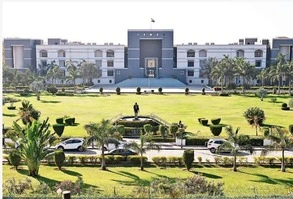The Gujarat High Court’s order, which seeks to address a long-standing gap between legislation and its enforcement, emphasizes providing adequate reservation in government jobs for persons with disabilities. The Division Bench, led by Chief Justice Sunita Agarwal and Justice Pranav Trivedi, passed the ruling in response to a Public Interest Litigation (PIL).
The PIL seeks full compliance with Section 34 of the 2016 Act and the 1995 Act, which mandate reservations for persons with disabilities. This directive follows a Supreme Court judgment in Union of India vs National Federation of the Blind (2013), which laid down clear guidelines for disability reservations in public sector jobs.
In a long-standing struggle for equal opportunities, the crux of the case, revolves around the state’s failure to properly calculate and implement job reservations for persons with disabilities. In March 2024, the High Court had ordered the Gujarat chief secretary to identify posts that must be filled by people with disabilities, in accordance with Section 34 of the 2016 Act.
However, discrepancies in the government’s data have led to claims that these vacancies were not correctly computed, thus violating the rights of disabled individuals.
The Supreme Court, in the National Federation of the Blind case, outlined specific instructions for the state:
- Compute a 3% reservation for persons with disabilities across four job groups (A, B, C, and D).
- Calculate this reservation based on total cadre strength, not just vacancies.
- Ensure that these reservations apply without affecting the 50% ceiling on overall job reservations.
Despite these directives, the Gujarat government’s progress has been rather slow in implementing them.
The 1995 law promised 3% reservation for disabilities such as blindness, hearing impairment, and locomotor disability. The 2016 law, which raised the reservation to 4%, also introduced two new categories of benchmark disabilities. Yet, these provisions have not been fully implemented, leading to a backlog of unfilled reserved posts. Government inaction exposed one of the major points of contention in the case—the backlog of vacancies reserved for disabled persons.
The petitioner argued that Gujarat has not properly implemented the reservation system, leading to a gap between 1996 and 2000 during which no reservations were made for disabled candidates. This failure, compounded by delayed enforcement of the 2016 Act, has severely limited job opportunities for persons with disabilities, exacerbating issues like poverty and social exclusion.
The Gujarat government’s defense, presented by the chief secretary, stated that vacancies not filled through a complete selection process could not be considered backlog vacancies. However, the Court found this reasoning flawed, emphasizing that the calculation of reserved posts must be based on the total number of advertised jobs, not just those left unfilled. In response to the Court’s scrutiny, the Gujarat government has begun recalculating the number of posts reserved for persons with disabilities across various departments, including public sector undertakings.
Data presented to the Court from 27 departments shows progress, but also highlights a significant number of vacant reserved posts, which must now be filled. The Court stressed that the provisions of the 1995 and 2016 Acts must be fully implemented without further delay. To address the issue of backlog vacancies, the state government has been advised to follow a simplified approach.
This involves identifying current employees with disabilities in each job group and ensuring that the 4% reservation mandated by the 2016 Act is met. If the current number of disabled employees falls short of this target, the shortfall will be treated as a backlog. The suggestion comes in line with a similar exercise conducted by the central government in 2015, which identified over 15,000 unfilled posts reserved for persons with disabilities.
A special recruitment drive was launched to fill these vacancies, a move that the Gujarat government may replicate with assistance from the Department of Personnel and Training. The High Court has given the state government a final opportunity to correct its failures in implementing disability reservations. The state has assured the Court that it is committed to complying with both the 1995 and 2016 Acts, ensuring equal opportunities for persons with disabilities. A plan for a special recruitment drive to address the backlog will be prepared in coordination with the central government.
The case has been adjourned until November 22, 2024, giving the Gujarat government time to take the necessary corrective actions. The Court also cautioned the state’s chief secretary to ensure accuracy in future statements and affidavits, warning that any further delay would constitute a violation of the law.
—By Shivam Sharma and India Legal Bureau


